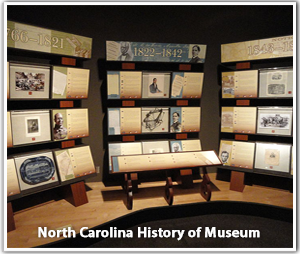Moving to Raleigh, NC
The City of Oaks was hand chosen by North Carolina legislators to be the state capital, because of its beautiful location. Today, Raleigh has remained true to its scenery. Though it is a large city, it has retained a small-city, natural feel by avoiding dense, urban development.
That’s not to say the city lacks big city amenities. Its economy is strong and growing, and it offers plenty by way of sports, food, education and exciting day-to-day experience, especially for young people, who the city is attracting at high levels.
Layout of Raleigh
Raleigh is located in central North Carolina on what’s known as the Atlantic Piedmont – flat, forested land that gently slopes up from the coast to the Appalachian Mountains. Raleigh is about a two-hour drive to the Atlantic coast and about four hours from the heavily-forested, hilly region known as the Smoky Mountains.
Raleigh is the center of a metro area that includes the nearby cities of Durham (Duke University), Chapel Hill (North Carolina University), and Cary. The metro is home to nearly 2 million people. Raleigh is the state capital, though it is smaller than Charlotte, NC.
Positives of Raleigh
Economy – Raleigh has one of the strongest economies in the U.S., which is based on the financial and health-care sectors. It has its hand in the biotech and software industries (Red Hat) as well. Because of its economy, the Raleigh metro is growing faster than any other large metro in the U.S. Its 5% growth is second only to Austin, TX.
Transportation – Residents are generally pleased with Raleigh’s smooth-running highway system. And for those who prefer not to drive, Raleigh and nearby Durham provide centralized downtowns that allow walking and biking.
Intimacy – Raleigh has a small-city vibe. Residents have plenty of places to go and downtowns to explore, but the area stays removed from a fully urban feel, such as in New York City.
Education – North Carolina State, North Carolina University, Duke University, William Peace University (liberal arts), Meredith College (women’s liberal arts)… the list goes on. There is no shortage of educational opportunities. Nor is there a shortage of basketball fans during March Madness.
Beauty – Raleigh is in a vegetation rich area with access to both the beach and the mountains. Residents can go skiing or swimming, both just a couple hours away. Weekend trips into beautiful country are more possible here than many places.
Negatives of Raleigh
Summer – Winter brings snow and ice and plenty of it; however, it’s summer that people complain about most. Those months average temperatures in the high 80’s, and humidity is about as thick as it comes.
Lack of Big City Vibes – Though many people like the small-big-city feel of Raleigh, those looking for the lively, dense experience of metropolitan New York or San Francisco aught to look elsewhere.
Crime – Many residents complain of metro-area crime being more akin to a large city, like Philadelphia, rather than the small-big city that Raleigh is. Gang affiliation is a recognized problem, especially in Durham.
Public Transit – Raleigh might be walkable, but if you can’t walk to work, you’ll probably have to drive, because public transit is lacking. There is a bus system, but residents complain of it, and, practically speaking, a bus system is not appropriate for connecting cities 30 miles apart, as is the distance between Raleigh and nearby Durham and Chapel Hill. Fortunately, when compared to most large cities, highway traffic is relatively minor.
Thinking about moving to Raleigh? Check out some Raleigh moving companies right here: Raleigh movers.



